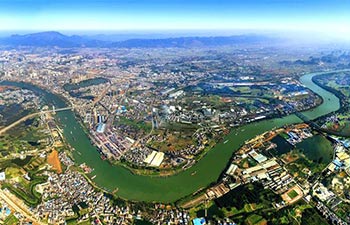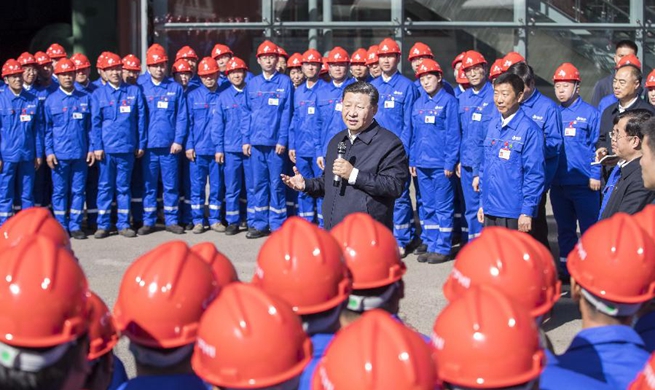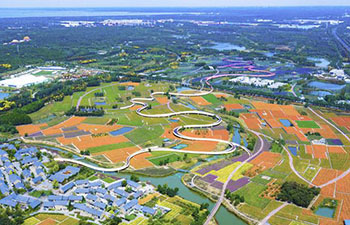KIGALI, Sept. 26 (Xinhua) -- Limited Information and Communication Technology (ICT) infrastructure has hindered Africa's efforts to achieve the fourth industrial revolution, experts said Wednesday.
They were speaking at the opening of 13th International Conference and Exhibition on ICT for Education, Training and Skills Development held in Kigali, capital of Rwanda.
The small central African country hosts the forum from Sept. 26 to 28, which seeks to discuss key issues affecting education, training, skills and technology in Africa.
Digital innovations are disrupting life on the African continent to catch up with the rest of world due to lack of adequate ICT infrastructure in place, said Elliott Masie, founder and president of the Masie Center of U.S., an international learning lab.
Infrastructure, especially connectivity, plays an increasingly critical role in accelerating Africa's efforts to bridge the global digital divide, he said.
The fourth industrial revolution is characterized by a fusion of technologies that is blurring the lines between the physical, digital, and biological spheres, according to Klaus Schwab, Founder and Executive Chairman of World Economic Forum.
Access to internet remains one of the greatest obstacles for Africans who want to embrace the global digital revolution, according to Frank Tumwebaze, Ugandan minister of ICT.
"The question today is to harness ways to increase investments in ICT infrastructure in Africa in order to position our continent in fourth industrial revolution," he said.
African governments need to scale up investments in ICT infrastructure in order to seize opportunities presented by the digital age, said Roland Lindenthal, head of the division for education at Federal Ministry for Economic Cooperation and Development of Germany.
Africa should also invest in people in the form of digital literacy to enable them to be part of the growing global technology sector, said the official.
The conference has brought together more than 1,000 high-level policy and decision makers and practitioners in the sectors of education and business from Africa and beyond.
The meeting will showcase stories, experiences, research, best practice, thinking and expertise that are central to ICT for education, training and skills development in Africa.













